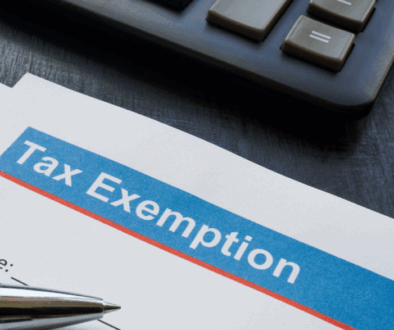How Much is Tax on a Bonus
Table of Contents
How Much is Tax on a Bonus
Are you expecting a bonus in your upcoming paycheck? While extra income is always a welcome surprise, it’s important to understand how much tax you’ll owe on that bonus. Knowing the tax implications can help you prepare financially and avoid any unpleasant surprises when tax season rolls around.
In this article, we’ll dive into the question, “How much is tax on a bonus?” We’ll explore the different ways bonuses are taxed and break down the calculations so you can get a clear understanding of what to expect.
Whether you’re an employee receiving a performance bonus, a self-employed individual receiving a year-end bonus, or an employer trying to understand your tax obligations when giving bonuses, this article has got you covered. We’ll provide you with the necessary information to navigate through the tax complexities and help you make informed financial decisions.
Understanding Bonuses and Taxes
Bonuses are additional compensation given to employees, often as a reward for exceptional performance, achievement of predefined goals, or during holidays. While bonuses can be a great way to boost employee morale and reward hard work, they are subject to taxation just like regular income.
When it comes to bonuses, the taxation process can be a bit different from your usual salary or wages. The tax treatment of bonuses depends on various factors, including the type of bonus, your employment status, and the tax laws in your jurisdiction. Understanding these factors is crucial in determining how much tax you’ll owe on your bonus.
Types of Bonuses and How They Are Taxed
Bonuses can come in various forms, and each type may have different tax implications. Let’s take a look at some common types of bonuses and how they are taxed.
- Performance Bonuses: These are bonuses awarded based on an employee’s performance or achievement of specific goals. Performance bonuses are typically taxed as ordinary income and are subject to federal, state, and local income taxes, as well as Social Security and Medicare taxes.
- Sign-On Bonuses: Sign-on bonuses are offered to attract new employees and often come with specific conditions, such as staying with the company for a certain period. These bonuses are also subject to ordinary income tax rates and other applicable taxes.
- Year-End Bonuses: Year-end bonuses are given as a reward for an employee’s contribution throughout the year. Like performance bonuses, year-end bonuses are generally taxed as ordinary income.
- Referral Bonuses: Referral bonuses are provided to employees who refer qualified candidates to their company. These bonuses are also treated as regular income and taxed accordingly.
It’s important to note that tax rates and laws can vary depending on your jurisdiction. It’s always a good idea to consult with a tax professional or refer to the IRS guidelines for accurate information on how bonuses are taxed in your specific situation.
Federal Tax on Bonuses
When it comes to federal taxes on bonuses, they are typically treated as supplemental wages. Supplemental wages include any form of compensation outside of regular wages, such as bonuses, commissions, and severance pay. The IRS provides two methods for calculating federal tax on supplemental wages: the percentage method and the aggregate method.
- Percentage Method: The percentage method is the most common way employers calculate federal tax on bonuses. Under this method, a flat rate of 22% is withheld for federal income tax purposes, regardless of an employee’s tax bracket. However, if the bonus exceeds $1 million, additional taxes may apply.
- Aggregate Method: The aggregate method allows employers to combine an employee’s regular wages and bonus amount to calculate the federal tax withholding. This method is more precise and may result in a lower or higher tax withholding depending on an employee’s tax bracket.
It’s important to review your Form W-4 and ensure the correct amount of federal tax is withheld from your bonus. If you find that too much or too little tax is being withheld, you can adjust your withholding allowances by filing a new Form W-4 with your employer.
State Tax on Bonuses
In addition to federal taxes, you may also be subject to state income tax on your bonus. State tax rates vary depending on your jurisdiction, and some states may not impose income tax at all. It’s essential to check your state’s tax laws to determine how your bonus will be taxed.
Some states apply a flat tax rate to supplemental wages, while others use the same tax brackets as regular income. Depending on where you live, your state may have specific rules for withholding state taxes on bonuses. Make sure to consult your state’s tax authority or a tax professional for accurate information.
Social Security and Medicare Taxes on Bonuses
In addition to federal and state income taxes, you’ll also be responsible for paying Social Security and Medicare taxes on your bonus. These taxes are collectively known as FICA (Federal Insurance Contributions Act) taxes and are withheld from your paycheck.
For Social Security, the current tax rate is 6.2% of your wages, up to a certain income limit. This limit is subject to change each year, so it’s crucial to stay updated with the latest information. As for Medicare tax, the rate is 1.45% of your wages, with no income limit.
Unlike federal income tax, there is no option to adjust your Social Security and Medicare tax withholding specifically for your bonus. These taxes are calculated based on the total wages you earn throughout the year, including your bonus.
Withholding Options for Bonuses
When receiving a bonus, you have a few options for how the taxes are withheld. These options can affect your cash flow and the amount of taxes owed during tax season. Let’s explore the different withholding options for bonuses.
- Lump-Sum Withholding: With this option, your employer may choose to withhold a flat rate of 22% for federal income tax, regardless of your tax bracket. While this option provides simplicity, it may not accurately reflect your actual tax liability.
- Percentage Withholding: Instead of the lump-sum approach, your employer may choose to withhold a percentage of your bonus for federal income tax purposes. This percentage is determined based on the IRS guidelines and can vary depending on your overall income.
- Aggregate Withholding: Some employers prefer to aggregate your regular wages and bonus amount to calculate the federal tax withholding. This method takes into account your tax bracket and provides a more accurate withholding calculation.
Your employer may also offer additional withholding options for state taxes, Social Security, and Medicare taxes. Make sure to review the withholding options available to you and choose the one that best aligns with your financial goals and tax situation.
Strategies to Minimize Taxes on Bonuses
While you may not have control over the tax rates or how your bonus is taxed, there are strategies you can implement to minimize the tax impact on your bonus. Here are a few strategies to consider:
- Contribute to Retirement Accounts: By contributing to tax-advantaged retirement accounts, such as a 401(k) or IRA, you can reduce your taxable income and potentially lower your tax liability on your bonus.
- Maximize Deductions: Take advantage of all available deductions to reduce your taxable income. This includes deductions for mortgage interest, student loan interest, medical expenses, and charitable contributions.
- Timing: If you have the flexibility to defer your bonus to the following year, it may be beneficial if you anticipate being in a lower tax bracket. However, this strategy should be carefully evaluated, as it depends on your individual circumstances.
- Consult with a Tax Professional: Tax laws can be complex, and the best way to ensure you’re making the right decisions is to consult with a tax professional. They can provide personalized advice based on your specific situation and help you navigate through the complexities of bonus taxation.
Remember, the goal is not to evade taxes but to understand the tax implications and make informed decisions that align with your financial goals.
Reporting and Documentation for Bonus Taxes
When it comes to reporting your bonus for tax purposes, you’ll receive a Form W-2 from your employer. This form outlines your total wages, including your bonus, and the amount of taxes withheld throughout the year.
It’s essential to review your Form W-2 for accuracy and report the information correctly on your tax return. If you notice any discrepancies, reach out to your employer to rectify the issue before filing your taxes.
If you’re self-employed and receive a bonus, you’ll need to report it as additional income on your self-employment tax return. Keep detailed records of your income and expenses to ensure accurate reporting and compliance with tax laws.
Calculating the Net Bonus After Taxes
After considering all the taxes and withholding options, you might be wondering how much of your bonus will actually end up in your pocket. To calculate the net bonus after taxes, you’ll need to subtract the total taxes withheld from your bonus.
The net amount will depend on various factors, such as your tax bracket, state tax rates, Social Security, and Medicare taxes. Using online calculators or consulting with a tax professional can give you a more accurate estimate of your net bonus.
Conclusion and Final Thoughts
Receiving a bonus is undoubtedly a cause for celebration, but it’s essential to understand the tax implications that come with it. By knowing how much tax you’ll owe on your bonus, you can plan effectively, avoid unexpected surprises, and make the most of your bonus income.
In this article, we explored the different ways bonuses are taxed, including federal, state, and Social Security/Medicare taxes. We discussed various types of bonuses and how they are treated for tax purposes. We also discussed strategies to minimize taxes on bonuses and the importance of reporting and documentation.
Remember, when it comes to taxes, it’s always best to consult with a tax professional or refer to the relevant tax authorities for accurate and up-to-date information. With the right knowledge and careful planning, you can make the most of your bonus while staying compliant with tax laws.
So, next time you receive a bonus, you can confidently answer the question, “How much is tax on a bonus?” and make informed financial decisions.




